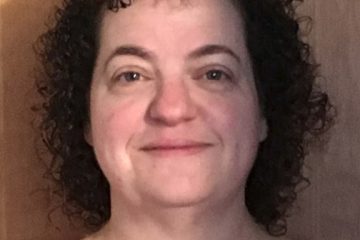Remember the fallen
By Rabbi Haviva Horvitz
Temple Beth Sholom Middletown
With so many holidays on the Jewish calendar, even during the month of May, it might seem odd for me to write about Memorial Day. And yet, I hope that after reading this article, the importance of this day and the lesson behind how it is observed will become clear.
Yom Ha’atzmaut, Israel’s Independence Day, is celebrated this year on April 26. Similar to America’s celebration of July 4, it is a day full of parades and picnics, fireworks and friends.
It falls on 5 Iyar according to the Hebrew calendar; correlating to the day when Israel was established with a declaration of independence in 1948.
However, unlike in America, Yom Ha’atzmaut is immediately preceded by Yom Hazikaron (Memorial Day), the Israeli Fallen Soldiers and Victims of Terrorism Remembrance Day.
Memorial Day in America, although commemorated with flags and moments of silence, is thought of today as more of a day to officially begin the summer. It is the day when the pools are opened, a day for taking time off from work and a day for extending the weekend.
Memorial Day was intended to be a day of remembering the men and women who died while serving in the United States Armed Forces. By the early 20th century, Memorial Day was an occasion for more general expressions of memory, as people visited the graves of their deceased relatives, whether they had served in the military or not. It also became a long weekend increasingly devoted to shopping, family gatherings, trips to the beach, and national media events such as the Indianapolis 500 auto race, held since 1911 on the Sunday of Memorial Day weekend.
In Israel on the other hand, Yom Hazikaron is still the day on which Israel honors its fallen servicemen and women. National memorial services are held in the presence of Israel’s top leadership and military personnel.
The day opens with a siren the preceding evening at 8 p.m., given that on the Hebrew calendar, days begin at sunset. The siren is heard all over the country and lasts for one minute, during which Israelis stop everything (including driving, which stops highways) and stand in silence, commemorating the fallen and showing respect.
Many religious Jews say prayers for the souls of the fallen soldiers at this time. The official ceremony to mark the opening of the day takes place at the Western Wall, and the flag of Israel is lowered to half-staff.
A two-minute siren is heard at 11 p.m. the following morning, which marks the opening of the official memorial ceremonies and private remembrance gatherings at each cemetery where soldiers are buried.
Many Israelis visit the resting places of loved ones throughout the day. The day officially draws to a close between 7 and 8 p.m. with the official ceremony of Israel Independence Day on Mount Herzl, when the flag of Israel is returned to full staff.
Scheduling Yom Hazikaron right before Yom Ha’atzmaut is intended to remind people of the price paid for independence and of what was achieved with the soldiers’ sacrifice. This transition shows the importance of this day among Israelis, most of whom have served in the armed forces or have a connection with people who were killed during their military service.
There is a poem by Archibald MacLeish found in the Reform prayer book, The Gates of Prayer, on page 692, which sets the tone appropriately for Memorial Day:
“The young dead soldiers do not speak. Nevertheless, they are heard in the still houses: who has not heard them? They have a silence that speaks for them at night and when the clock counts. They say: We were young. We have died. Remember us. They say: We have done what we could but until it is finished, it is not done. They say: We have given our lives but until it is finished no one can know what our lives gave. They say: Our deaths are not ours: they are yours, they will mean what you make them. They say: Whether our lives and our deaths were for peace and a new hope or for nothing we cannot say, it is you who must say this. We leave you our deaths. Give them their meaning. We were young, they say. We have died; remember us.”
However you and your family choose to observe Memorial Day (and may I suggest that you join us in Middletown for the parade), please consider taking a moment to remember the meaning of the day and give thanks for those who have given their lives so that we can live in a country which celebrates freedom.





